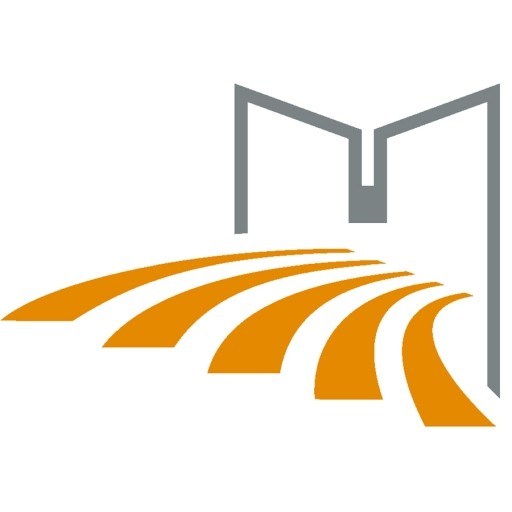Founded in 1978, the University of Passau is a relatively young institution located in Bavaria, Germany. It was established with the goal of creating an innovative academic environment that fosters interdisciplinary research and teaching. The university is known for its focus on law, economics, computer science, and cultural studies, making it a prominent center for interdisciplinary education. Over the decades, the University of Passau has grown significantly, expanding its academic programs and research capacities. It has developed a reputation for its strong emphasis on internationalization, actively recruiting students and faculty from around the world to create a diverse academic community. The university's campus features modern facilities designed to support cutting-edge research and learning. It has also invested in digital infrastructure to enhance the educational experience. Throughout its history, the University of Passau has been committed to promoting innovative teaching methods and fostering close cooperation between academia and industry. The institution continues to evolve, striving to meet the changing needs of society and the economy, and maintaining its position as a leading university in the region.
Admission requirements at the University of Passau generally include completion of secondary education equivalent to the German Abitur, meeting specific subject and grade requirements for the chosen program, proof of language proficiency in German (usually DSH or TestDaF) for German-taught programs, or English language proficiency (such as TOEFL or IELTS) for programs taught in English. Applicants must submit a completed application form along with official transcripts, proof of language skills, a CV, motivation letter, and sometimes letters of recommendation, depending on the program. International students from non-EU countries may also need to verify their academic credentials and provide proof of financial resources to secure a student visa. The university evaluates each application individually, considering academic records, language skills, and motivation. Some programs may have additional entrance examinations or interviews. The application process typically begins online through the university's application portal, where prospective students upload required documents and track their application status. Deadlines vary depending on whether applying for winter or summer semester. Prior to applying, students should ensure they meet all specific program prerequisites and language requirements stipulated by the university. It is highly recommended to consult the official university admissions webpage for the most current and detailed instructions regarding application procedures, required documents, and deadlines, as these can change each academic year. The university values a diverse student body and encourages applicants from all over the world.
The University of Passau is accredited by several reputable organizations, ensuring the quality and standards of its academic programs. It is accredited by ACQUIN (Agency for Accreditation of Degree Programs, Accreditation, and Certification), which is a recognized accreditation agency in Germany. ACQUIN evaluates the university's degree programs based on rigorous standards to guarantee academic excellence and relevance. Additionally, the university is recognized by the German Council of Science and Humanities (Wissenschaftsrat), which assesses the quality of higher education institutions in Germany and provides recommendations for improvement. The University of Passau maintains compliance with national and international quality assurance standards, enabling it to offer recognized and reputable degree programs. Its accreditation status allows students to transfer credits and ensures their degrees are recognized both within Germany and across Europe. The university also participates in the European Higher Education Area, aligning its programs with the Bologna Process to facilitate mobility and recognition of qualifications across Europe. Furthermore, the university’s research activities are regularly evaluated by accreditation bodies to uphold high standards of scholarly work. Overall, the accreditation of the University of Passau demonstrates its commitment to providing high-quality education and research, maintaining transparency, and continuously improving its academic offerings to meet global standards.
University of Passau offers a vibrant and diverse student life that enriches the academic experience. Students have access to a wide range of extracurricular activities, including numerous sports clubs, cultural events, student associations, and volunteering opportunities. The university's campuses are equipped with modern facilities such as libraries, study areas, and recreational spaces, fostering a collaborative and engaging environment. Student organizations organize regular events like festivals, workshops, and social gatherings, encouraging community building and intercultural exchange. The university promotes an inclusive atmosphere where students from different backgrounds can connect and share their experiences. There are also support services available to help students with their personal and academic development, including counseling, career advice, and language courses. University of Passau's location near the scenic Bavarian Forest and River Danube provides opportunities for outdoor activities such as hiking, cycling, and boating, contributing to a balanced lifestyle. The university’s international community hosts exchange programs that allow students to study abroad and experience different cultures. The active student government represents student interests and organizes initiatives to improve campus life. Overall, student life at the University of Passau is characterized by its lively, supportive, and inclusive environment, enabling students to thrive both academically and socially.
University of Passau offers a unique academic environment characterized by its close-knit community and interdisciplinary approach to education. Its focus on combining law, economics, computer science, and social sciences allows students to develop comprehensive skills and adaptable knowledge relevant to today’s interconnected world. The university’s international orientation is reflected in numerous exchange programs, partnerships with global institutions, and a diverse student body, fostering cross-cultural understanding and global networking opportunities. Modern research facilities and a dedicated faculty provide students with high-quality instruction and innovative research projects, encouraging academic excellence and practical application of knowledge. The campus’s picturesque setting along the Danube River creates an inspiring atmosphere conducive to learning and personal growth. Additionally, the university emphasizes personalized support for students through career services, mentoring programs, and language courses, enhancing employability and personal development. Its commitment to sustainability and innovation, combined with a vibrant campus life featuring various cultural and sporting activities, makes it an attractive choice for students seeking an enriching educational experience in Germany.
